Common Pitfalls as a Graphic Designer and How to Avoid Them
Dec 20, 2024 | Ken Llana
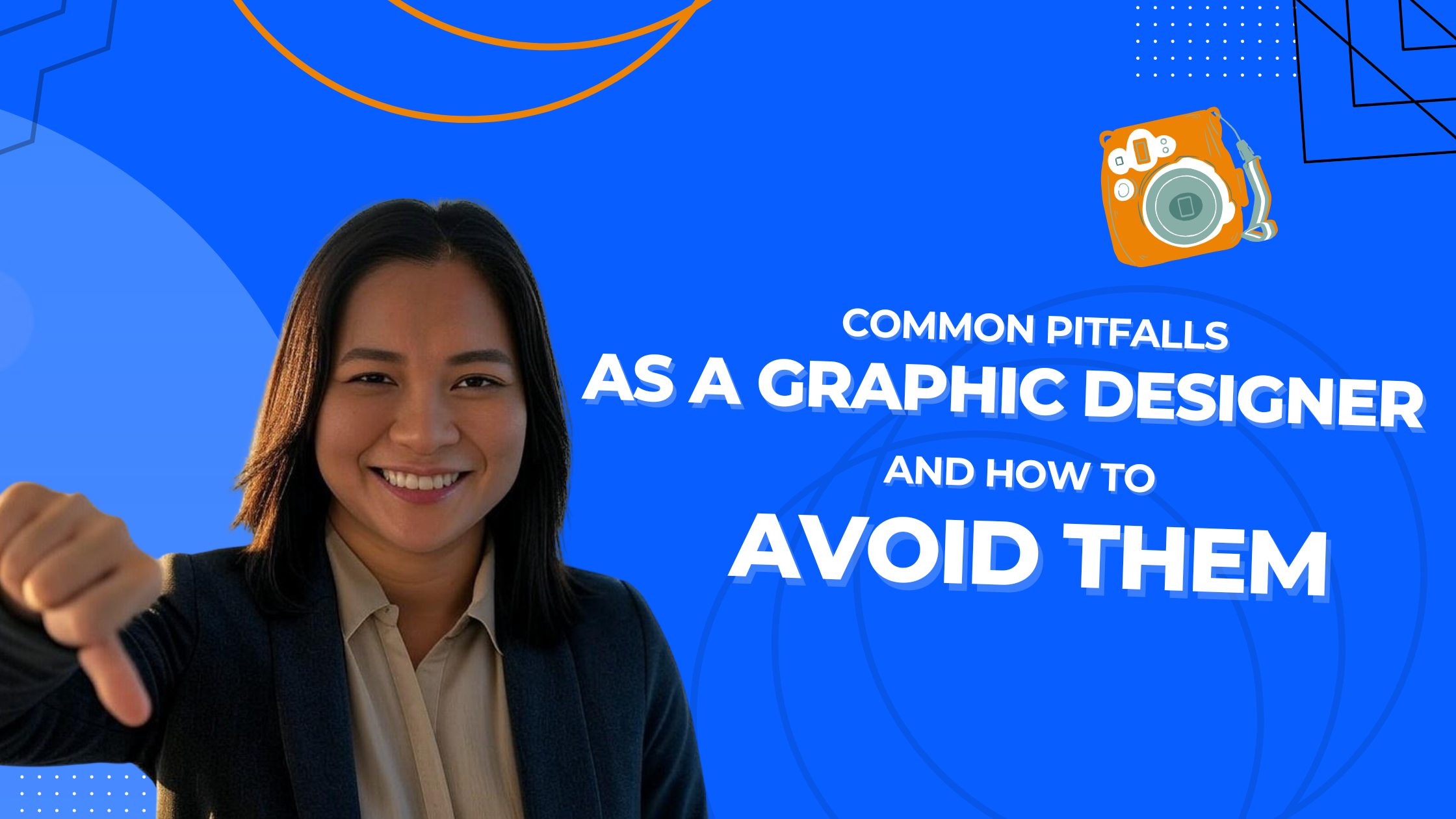
Embarking on a career as a graphic designer, whether independently or as a graphic design virtual assistant, presents numerous opportunities to showcase creativity and contribute to diverse projects. However, the journey is fraught with challenges that can impede professional growth and success. Recognizing and addressing these pitfalls is essential for building a sustainable and rewarding career in graphic design.
Creative Exhaustion in Graphic Designers
This is one of the difficulties graphic designers encounter that is especially hard for picky clients to comprehend. A physician cannot claim that they don’t “feel” like performing surgery on a patient. Even if a salesperson isn’t feeling very persuasive or talkative, they will still continue to work.
However, it’s quite common for designers to feel as though their ideas aren’t flowing at times. A skilled professional can always create something, but without inspiration, the graphics will likely seem very uninspired and boring.
How to avoid Creative Exhaustion:
Sometimes doing something over and over again without any other creative outlets leads directly to creative burnout. Therefore, coming up with a new way to express your creativity can help you come up with ideas and even practice graphic design. Painting, photography, and sculpture are all excellent examples of related fields.
Making connections with people in the graphic design industry is another temporary fix, just like in any other profession. Compared to clients seeking graphic design, creative professionals are better equipped to ask insightful questions. Consequently, this may indicate an alternative course or viewpoint that you have not considered.
Limited Creative Freedom
Is graphic design difficult? At least one of the reasons why every designer will answer “yes” is this.
It can be difficult to defend your work and creative choices when there is no mathematical formula to determine a design’s success. Only 18% of graphic designers work in advertising and design agencies, and 90% of them are freelancers. The majority of graphic designers collaborate with non-designers. Dealing with unsolicited opinions and awkward requests, like “Can you make it pop?” or “Let’s use up this empty space,” is therefore one of the most frequent graphic design issues.
It’s a bad idea to keep your head down and comply with every request that deviates from the most fundamental design principles. Not only does this compromise your integrity as a professional.
How to overcome this challenge?
1. Ask Questions
Sometimes clients just want to feel understood. Instead of dismissing their requests as unreasonable, dig deeper to understand their reasoning. This approach fosters collaboration and builds trust.
2. Present Data
If a client dislikes your design choice, support your decisions with facts. For example, if they dislike a blue logo, explain that 40% of Fortune 500 companies use blue in their branding. Case studies or examples from your portfolio can also help demonstrate why a specific approach is effective.
3. Offer Alternatives
Clients may request changes simply because they lack options. By presenting multiple variations—such as different color schemes—you can prevent conflicts and make them feel more involved in the process.
4. Find a Compromise
Effective collaboration often comes down to compromise. Instead of accepting every request, work on blending their vision with yours. Remember, clear communication is one of the most essential graphic design skills to master.
Balancing Aesthetics and Functionality
What takes precedence in design: aesthetics or functionality? The answer is—it depends. In fields like user interface (UI) and user experience (UX) design, functionality is often the top priority. However, for projects like logo design or social media posts, standing out visually can be just as critical.
Both appearance and usability are essential in graphic design, but finding the right balance between the two remains one of the toughest challenges for designers.
How to Address This Challenge
A simple rule to follow is that usability should always take precedence over aesthetics. This might seem counterintuitive coming from a graphic design professional, but it highlights a key distinction: unlike art, graphic design serves a specific purpose.
If an ad isn’t generating clicks or a website frustrates users, even the most visually stunning design will fail to deliver results.
To create designs that are both functional and visually appealing, adhere to brand guidelines. While not every brand identity may be inherently beautiful, it is often crafted with a target audience in mind. Maintaining consistency in design strengthens brand recognition and fosters customer loyalty, ensuring that your designs are not only attractive but also effective.
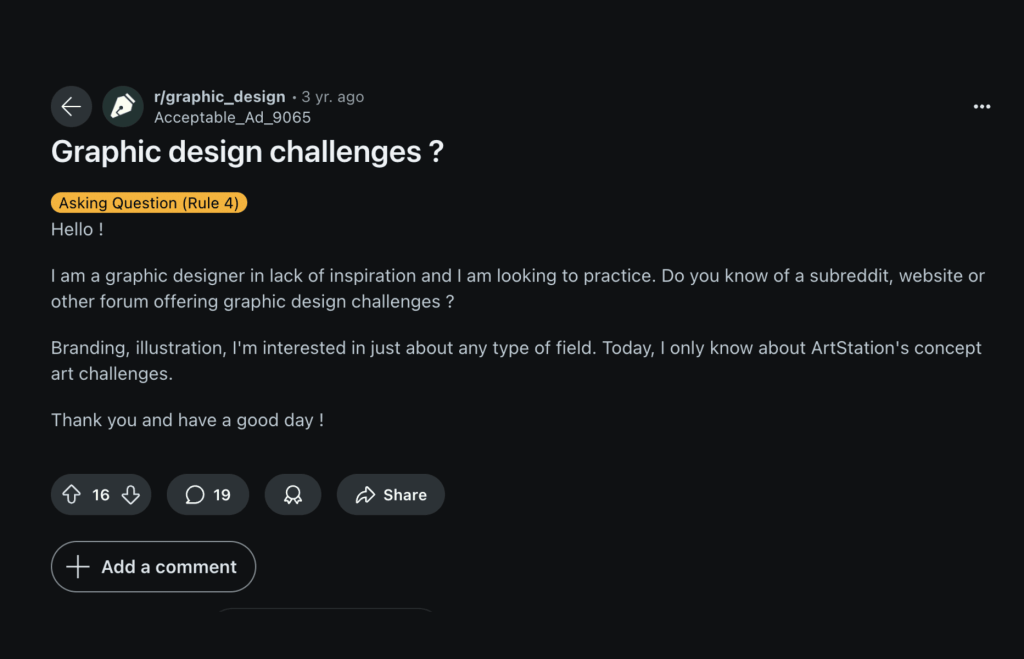
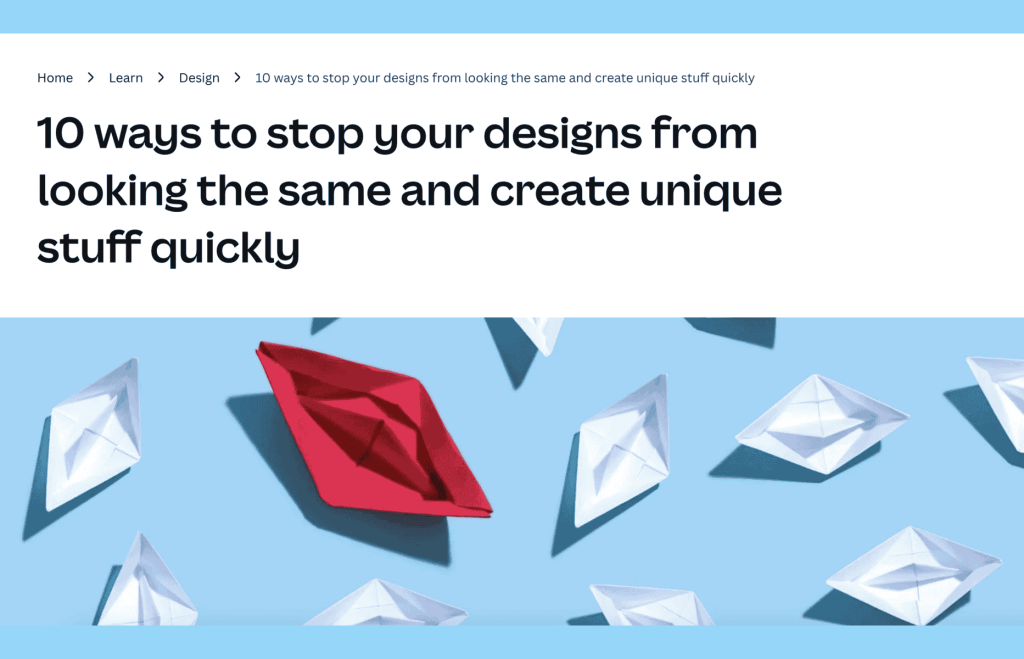
Image Source: reddit.com/r/graphic_design/
Staying Updated with Technology
Not too long ago, graphic design was done primarily with pens and paper. Today, the field is driven by constant advancements in graphic design software, expanding what designers can achieve. One of the most significant shifts in recent years is the emergence of AI in design. From logos to social media graphics, AI tools are being widely adopted, often as a cost-effective alternative to hiring professional designers.
How to Overcome This Challenge
5. Managing Workflow Effectively
Team collaboration is an essential part of graphic design, but it often comes with challenges like miscommunication, tight deadlines, and inefficiencies. Designers frequently face issues managing their tasks, whether working solo or within a team.
How to Overcome This Challenge
Here's a video you can watch to overcome CREATIVE BURNOUT
In the ever-evolving world of graphic design, challenges like staying updated with technology, balancing creativity with functionality, and managing workflows are inevitable. However, by mastering key tools, leveraging AI, improving communication, and optimizing workflows, designers can overcome these hurdles. Success lies in adaptability, continuous learning, and striking a balance between creativity and practicality, ensuring impactful and efficient design solutions.
Related Posts

- January 20, 2025
How to export high-quality images in Illustrator/Photoshop
Home About Services Blog Go High Level Graphics Design...
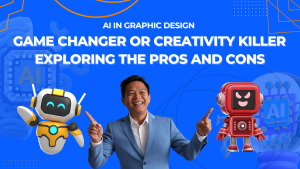
- December 20, 2024
AI in Graphic Design: Game-Changer or Creativity Killer? Exploring the Pros and Cons
Home About Services Blog Go High Level Graphics Design...
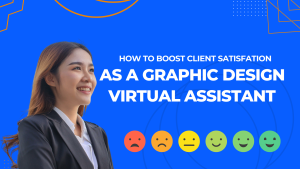
- December 20, 2024
How to Boost Client Satisfaction with the Help of Graphic Design Virtual Assistants
Home About Services Blog Go High Level Graphics Design...
Join Our Newsletter


